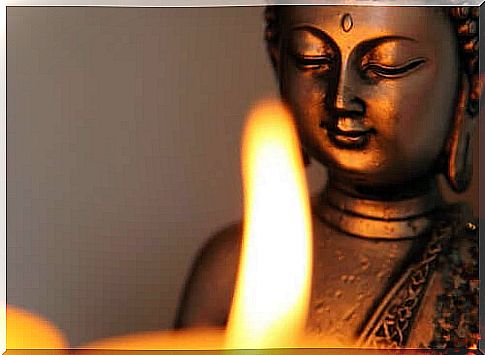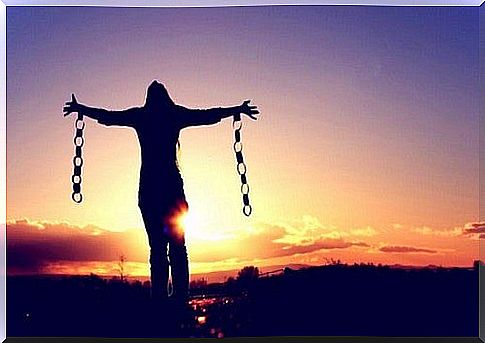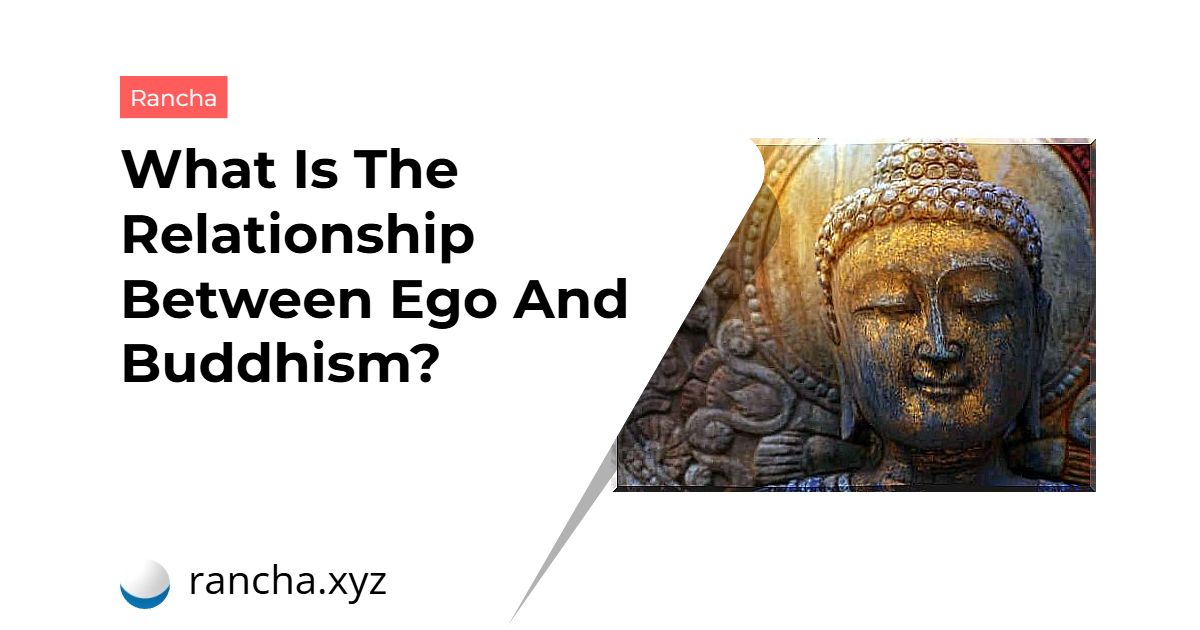Ego and Buddhism are two inseparable terms. Anyone who wants to delve into Buddhism will come across ego as one of the first topics. Anyone who wants to delve into the ego will find in Buddhism one of the deepest philosophical and psychological currents. What differentiates Buddhism from the better known religions when it comes to the ego? Lack of its inherent existence. That is, according to Buddhism, we would not exist as we seem to exist. It’s not interesting?
Much of Buddhist knowledge aims to dethrone the ego from its position as king. There is a belief that the ego must be destroyed, but this is not entirely true.
The ego occupies a central position that controls and dominates our lives. Buddhism tells us to put you in the position of minister or adviser. It is indisputable that we have a name, beliefs, customs… but if the ego dominates us, we make it a fixed identity. On the other hand, if we put it in the right position, we are free from conditioning and therefore happier.
What is the ego?
From the moment we are born, our ego starts to develop. Everything we are and everything we identify with forms our ego. Our name, nationality, belonging to different groups, beliefs, etc., form our identity. We accumulate all this information thanks to our memory and make it our “I”. However, Buddhism tells us that this is not at all true.
According to Buddhism, the ego is the misconception of the “I” as a self-existing entity. It is the idea of nature inherent in the ego. The view of “I” held by a mind that has not understood the concept of emptiness. What is empty? The lack of existence inherent in all phenomena.

As the Zen Buddhist master Linji told his disciples: “My friends, make no mistake. All phenomena, whether mundane or supramundane, lack a nature of their own. They are all unborn and therefore are mere designations, empty names. The expression “mere designation” is itself empty. Why do you take the name for granted? If you do, are you wrong?”
It’s possible that if you’re reading the concept of emptiness for the first time, you’ll find it a little complex to understand. Understanding the relationship between ego and Buddhism is an adventure that invites us to discover new terms and to change or clarify a little the meaning of some we already know. So, let’s talk about the ego to better understand these two concepts.
Seeking the ego: where is it? who am I?
- Is it in my name ? The answer is no. They could call me one way or another and that would have no bearing on my way of being.
- Is it my nationality? Neither. I could have been born in any other country.
- Is it in my thoughts? This is a sore point. Many claim that we are what we think because from thoughts comes action. Today, however, I can think of one thing and tomorrow another. So a thought may be more or less lasting, but I am not that thought. How many times have we changed our minds? How many times have we thought we have little value, but our surroundings make us see and believe the exact opposite?
- Is it in my actions? We don’t always perform the same actions. We can make mistakes and learn. We can repeat the same action a few times, but we have the ability to change our behavior. Therefore, there is no inherent action that defines us, because it is also variable.
- Is it in my culture, or is it in my society? I can be part of one or another culture. This is random. Furthermore, despite our culture, we also have our way of being, our own way of thinking. When we travel, read, meditate, study… there may be a change in us that changes our social and cultural conditioning.
- Is it in my body? Where in my body is the ego? Am I my body? If one day I have an accident and lose my legs, will I still be me? At first, yes, but without the legs. The ego doesn’t vary, even if it doesn’t have legs. So it’s not in my body either.
So where is my ego? Who am I?
ego and attachment
As the Indian sage Shantideva said in the book Bodhisattvacharyavatara : “When ordinary beings perceive phenomena, they consider them real and not illusory. That’s what meditators and everyday people disagree about . ” Thus, little by little we approach the more exact concept of Void and Ego.
If we look at a table, we can think: “it is a table” . And here enter two levels of analysis: relative level and absolute level. On a relative level, we can say that yes, we have a table in front of us. On an absolute level, speech changes. If we look closely at the table, we can begin to break it down: four legs supporting a plank. If we take the table apart, where will the table be? There will be no table. If we put the pieces together, in theory, we will have the table again.
This example shows that the set of four legs and a board placed and adjusted in a specific position is given the table identity. But there are still four legs and a board. This simple example is applicable to the ego. When we perceive ourselves statically and invariably, we cling to our ego. Ego and attachment go hand in hand. “I am like that” , we hear many times. It is nothing more than a statement about how little awareness of change we all possess.
When we cling to the ego, our iron identity is born, with few possibilities for change. However, everything changes. When we free the mind from a static identity, we open ourselves to external changes and circumstances. In this way, the intensity of our suffering diminishes.

Ego, selfishness and self-centeredness
Another important aspect is that egoism and self-centeredness are born from the ego. By perceiving the world from our static ego, we want everything that happens to fit our expectations, with the ideas we have of what should happen. “I am like that and things should be as I think they should be” . From the ego comes self-centeredness. That is, everything should be as I think it should be. If something is different from my expectations, I suffer, I get irritated, angry, etc. And selfishness also arises, that is, in our mental map we become the Sun, thinking about what surrounds us as elements that revolve around us.
As the psychotherapist, sociologist and theologian Enrique Martínez Lozano said : “ The vine and the branches, the tree and the branch, are they one or two? A branch can rightly say: “I am a branch”, and also: “I am a tree” : they are not one or two; they are “not-two” . He continues: “Given the mind’s inability to understand the not-two, if one wants to access non-duality, it is necessary to silence the mind, moving from ‘thought to attention’. So it is seen that “separation is just a mental creation” and that nothing exists apart from nothing.”
What does Martínez Lozano want to tell us? That the ego perceives everything separately: “Me and the rest”. When, in reality, there is no observer, action of observing or observed object. Everything is consciousness, but due to our thoughts we contaminate our perception of reality.
In this way, due to all our thoughts and conditioning, we perceive the world from an ego that we create little by little. But it’s an artificial ego. An ego that does not exist as such, but forms a set of many aspects that, in addition, change.
Ego and Buddhism: Final Thought
Antonio Blay said : “There is only one reality. But we do not live it directly, but through the mind , and the mind divides it: when it sees it inside, it calls it “I”; when he sees it outside, he calls it “the world”; and when he sees her above, he calls her “God” . Given this, Martínez Lozano gives us a key: “Try to let go of the constriction that led you to limit (reduce) yourself to your mind. What are you when, instead of thinking, you simply pay attention to yourself? Your self is born of the mind; silence the mind and you will notice how the self dissolves; it was just a form”.
Ego and Buddhism, without a doubt, are two concepts that go hand in hand. If we decide to go deeper into these concepts, we will realize a new horizon in our lives, a new way of relating to others. Thus, it is a way to get to know each other in a different, innovative and enriching way.
 rancha.xyz Be free to choose their own route to self-knowledge, health and balance of body and soul.
rancha.xyz Be free to choose their own route to self-knowledge, health and balance of body and soul.




